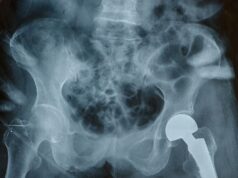Rude surgeons can have a profoundly negative impact on patient health, extending beyond the immediate surgical outcome. The high-stakes, high-pressure environment of an operating theatre demands a cohesive and respectful team dynamic. When surgeons engage in rudeness or bullying behavior, it can disrupt communication, collaboration, and overall teamwork, jeopardizing the precision and efficiency of surgical procedures. Additionally, a hostile work environment contributes to increased stress levels among healthcare professionals, potentially impairing their decision-making abilities. Patients may suffer from delayed or suboptimal care due to a breakdown in communication caused by the negative atmosphere.
In an initiative, reminiscent of Jeremy Bentham’s Panopticon concept, Australian researchers combat offensive behavior within orthopaedic operating theatres through the strategic placement of ‘eye’ signage, creating an atmosphere of constant observation. The success of this intervention lies in the subconscious impact of feeling “watched,” akin to the panoptic principle where the perception of surveillance influences behavior. The study not only addresses the prevalent issues of incivility in high-stress environments but also draws parallels to the Panopticon’s aim to reform behavior through the perception of being under constant scrutiny. As the experiment significantly reduces poor conduct among surgical teams, it echoes the Panopticon’s idea of surveillance leading to self-discipline. This innovative approach offers a promising alternative to traditional interventions, emphasizing the powerful impact of simple yet effective measures on workplace culture, particularly in challenging industries like healthcare.
Lead researcher Professor Cheri Ostroff attributes the success to the subconscious impact of feeling “watched,” shedding light on the prevalent issue of incivility in high-stress environments like operating theatres. The three-month experiment sought to counteract a pervasive culture of bullying, recognizing its detrimental effects on staff morale, productivity, and ultimately patient outcomes.
Incivility, as identified in the study, leads to far-reaching consequences such as increased staff turnover, diminished job satisfaction, reduced productivity, and a lax adherence to infection control and medication protocols. While previous interventions, such as workshops and training sessions, have shown limited success internationally, the eye signage experiment presents a promising alternative.
Surgeon Dr. Nicholas Wallwork, a participant in the study, emphasizes the unique challenges of the surgical environment, where a high-functioning, stable team is crucial but often difficult to achieve due to various factors. The study indicates that the stakes involved in surgical procedures contribute to rudeness and bullying, highlighting the need for changes in leadership structures to alleviate burnout and staff turnover.
The research underscores four key areas that demand attention for a more positive workplace culture: senior management acting as role models and emphasizing respect, acknowledging employees’ value, fostering open communication within and between teams, and providing clarity in roles.
The success of the eye signage experiment in curbing offensive behavior in orthopaedic operating theatres is a testament to the potential impact of simple yet effective interventions. Addressing workplace culture issues is imperative in healthcare settings, where disconnects between management and frontline stressors can contribute to incivility. This study offers valuable insights for organizations seeking tangible solutions to foster a respectful and collaborative work environment in high-pressure industries.
Sources:
Eyes on incivility in surgical teams: Teamwork, well-being, and an intervention
Eye-catching experiment reduces rudeness in operating theaters
Adelaide hospital tackles ‘sexist’ and ‘humiliating’ behaviour of surgeons with eye posters
When Surgeons Are Abrasive To Co-Workers, Patients’ Health May Suffer
How Rude! Incivility Can Cause OR Woes
Rude surgeons may also be most hazardous: 5 study findings to know
Building Respect, Improving Patient Safety: From Awareness to Action
Internalized Authority and the Prison of the Mind: Bentham and Foucault’s Panopticon





